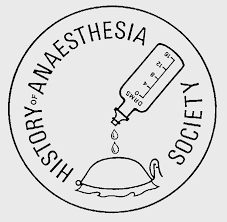Thomas Boulton Anaesthesia History Prize 2026

The Association of Anaesthetists (the Association) and the History of Anaesthesia Society will offer a cash prize to members of the Association who are either medical students, Foundation Year or resident doctors for an original essay of 4000-6000 words on a topic related to the history of anaesthesia, intensive care or pain management.
Deadline for submission is 23:59 on Wednesday 28 January 2026.
Submission guidance:
- Submitters must be the sole author of their essay.
- Essays should have reference in Vancouver format.
- Illustrations are allowed.
- The paper should not previously have been published.
- Resubmission of an essay previously submitted to the Thomas Boulton Anaesthesia History prize may only be allowed on one occasion.
- All essays will be subject to a plagiarism check as part of the judging process. Any essay deemed to be outside the allowed range will be withdrawn from the process.
- All authors must be natural persons; artificial intelligence systems do not meet the criteria for authorship as these cannot account and take responsibility for the submitted work.
- Submitted essays will be archived for research purposes.
The £500 prize and an engraved medal will be awarded at the discretion of the judging panel, and the winner may be invited to present the paper at the Association Resident Doctors Conference. In addition the winner and other selected entrants may be invited to present their work at the History of Anaesthesia Society Annual Meeting. Certificates of merit may also be awarded to other entries of high standard.
The winning entry may be published on the Association website or in Anaesthesia News at the discretion of the Editor.
Previous winning essays include:
- 2017 - Come Fly With Me: The story of taking intensive care medicine and critical care above the clouds by Dr Sam Fosker
- 2018 - Monitoring depth of anaesthesia a long-standing enterprise by Miss Laura Gounon
- 2019 - Blood Transfusion for Haemorrhagic Shock. Have we come full circle? by Dr Laura Naumann
- 2020 - Spinal Anaesthesia during the 19th and 20th Centuries -- Cocaine and Controversy by Mr Serkin Cakir
- 2021 - The ABCs of Anaesthetic History -- Alcohol, Beer and Cocktails by Dr John Thompson
- 2022 - The Story of how Victorian Britain Came to Accept General Anaesthesia by Dr Owen Duffey
- 2023 - Coming out of a bad trip: The turbulent history of ketamine and its promising future by Dr Hanin Ramadan
- 2024 - The story of anaesthesia in ancient Greek mythology: More than a senseless odyssey - Dr Luke Solomi
- 2025 - Ebb and Flow: Innovations and Controversies in the Development of IV Fluid Therapy - Dr Myles Woodman
Essays will be assessed by members of the Association of Anaesthetists Heritage Steering Group and represntatives of the History of Anaesthesia Society using the following scoring criteria:
Relevance to theme
- Not related; ignores topic
- Poetic licence needed
- Some relevance; misses point of topic
- Mostly relevant; doesn't fully address topic
- Entirely answers question; fully related to topic
Originality/author's ideas
- No new ideas; poor arguments
- Little novel; not publishable
- Some novel ideas; uses well-known arguments
- Good arguments; publishable
- Novel ideas; immediate reader impact
How well researched
- No evidence base presented
- Little research; inappropriate references
- Some evidence presented; mostly opinion/hearsay
- Mostly evidence based; appropriate use of references
- Fully referenced; understands quoted literature
How well written and laid out
- Confused presentation; no adherence to word limit
- Unclear arguments; poorly laid out; poor use of English
- Layout could be improved; untidy in parts
- Reasonable prose; within 10% of word limit
- Clear and concise; well presented; within word limit
If you have any additional queries, please contact the Association Governance team on 020 7631 1650 option 3 or at [email protected]